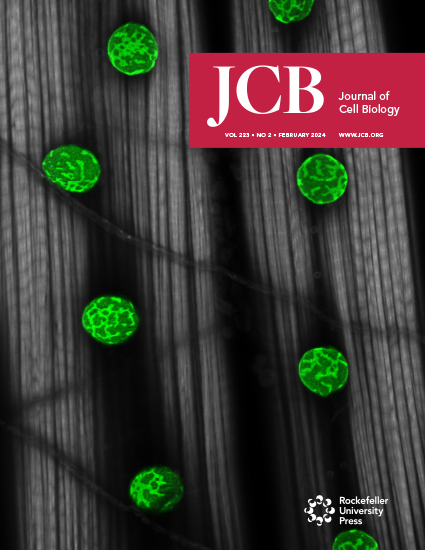Identification of organelle-specific autophagy regulators from tandem CRISPR screens.
IF 6.4
1区 生物学
Q1 CELL BIOLOGY
引用次数: 0
Abstract
Autophagy is a conserved degradative process that promotes cellular homeostasis under stress conditions. Under nutrient starvation, autophagy is nonselective, promoting indiscriminate breakdown of cytosolic components. Conversely, selective autophagy is responsible for the specific turnover of damaged organelles. We hypothesized that selective autophagy may be regulated by signaling pathways distinct from those controlling starvation-induced autophagy, thereby promoting organelle turnover. To address this question, we conducted kinome-wide CRISPR screens to identify distinct signaling pathways responsible for the regulation of basal autophagy, starvation-induced autophagy, and two types of selective autophagy, ER-phagy and pexophagy. These parallel screens identified both known and novel autophagy regulators, some common to all conditions and others specific to selective autophagy. More specifically, CDK11A and NME3 were further characterized to be selective ER-phagy regulators. Meanwhile, PAN3 and CDC42BPG were identified as an activator and inhibitor of pexophagy, respectively. Collectively, these datasets provide the first comparative description of the kinase signaling that defines the regulation of selective autophagy and bulk autophagy.从串联CRISPR筛选中鉴定细胞器特异性自噬调节因子。
自噬是一种保守的降解过程,在应激条件下促进细胞稳态。在营养匮乏的情况下,自噬是非选择性的,促进细胞质成分的不分青红皂白的分解。相反,选择性自噬负责受损细胞器的特异性周转。我们假设选择性自噬可能受到不同于控制饥饿诱导的自噬的信号通路的调节,从而促进细胞器的更新。为了解决这个问题,我们进行了kinome-wide CRISPR筛选,以确定负责调节基础自噬、饥饿诱导自噬以及两种选择性自噬(ER-phagy和pexophagy)的不同信号通路。这些平行筛选确定了已知的和新的自噬调节因子,一些是所有条件下共同的,另一些是选择性自噬所特有的。更具体地说,CDK11A和NME3被进一步表征为选择性er吞噬调节因子。同时,PAN3和CDC42BPG分别被鉴定为食腐的激活剂和抑制剂。总的来说,这些数据集提供了定义选择性自噬和大量自噬调节的激酶信号传导的第一个比较描述。
本文章由计算机程序翻译,如有差异,请以英文原文为准。
求助全文
约1分钟内获得全文
求助全文
来源期刊

Journal of Cell Biology
生物-细胞生物学
CiteScore
12.60
自引率
2.60%
发文量
213
审稿时长
1 months
期刊介绍:
The Journal of Cell Biology (JCB) is a comprehensive journal dedicated to publishing original discoveries across all realms of cell biology. We invite papers presenting novel cellular or molecular advancements in various domains of basic cell biology, along with applied cell biology research in diverse systems such as immunology, neurobiology, metabolism, virology, developmental biology, and plant biology. We enthusiastically welcome submissions showcasing significant findings of interest to cell biologists, irrespective of the experimental approach.
 求助内容:
求助内容: 应助结果提醒方式:
应助结果提醒方式:


